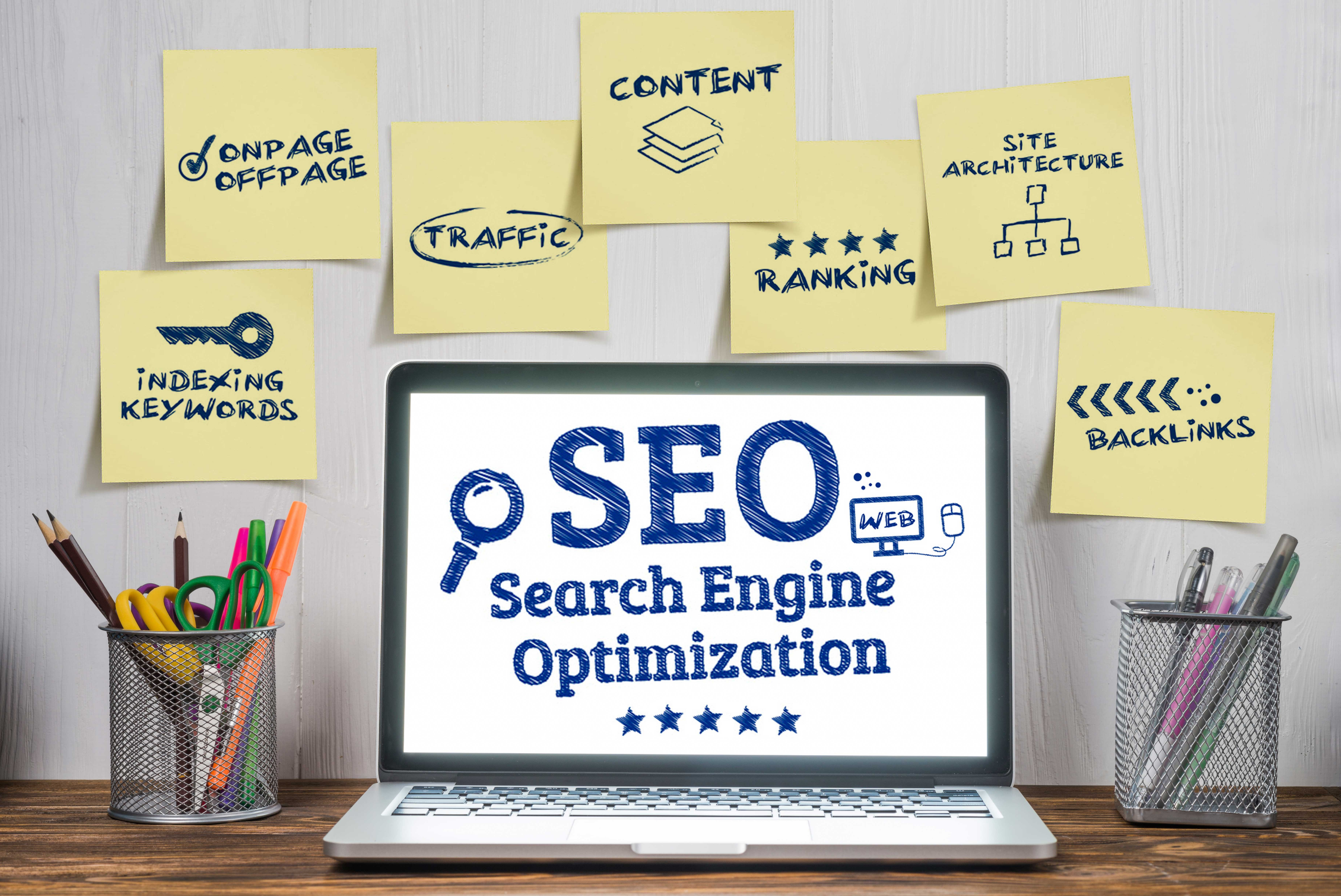5 myths to leave behind for your SEO strategy in 2021

SEO has been an established practice since (approximately) 1997; and with multiple Google updates a year and new best practices continually surfacing, keeping up with the latest SEO wisdom can be tough – especially if you don’t have a dedicated specialist working for you full time.
It becomes even tougher still when myths like the ones outlined below are circulating! In this blog, we explore and debunk these myths so you can implement best practices in your own SEO as part of your inbound marketing strategy...
5 SEO myths debunked:
1. Performing SEO leads to bad content
With all the information around about how old SEO tactics (such as keyword stuffing and link-building) are out-dated, it’s tempting to think that search engine optimisation will result in unnatural, boring content.
On the contrary, thinking about your SEO strategy is a great place to start when planning good content, as it will give you a solid framework to build around. We'd recommend hiring a content writer who can create blogs, web and email copy that is relevant to your customers and find the keywords that will naturally fit into the content.
A good writer will use keywords and links as a guide for pulling together and structuring information that your customers find useful.
You could also create personas to help categorise customers, discover their pain points and what they are searching for online. In doing so, this will create content that your customers can find easily using search engines and helps your writer understand who they are talking to.
The more relevant your content is at the end of those search results, the more likely it is that people will stay, read and take the desired action, whether that’s getting in touch or buying your product.
Better content also means more people are likely to share it, which can lead to higher search engine rankings.
2. Meta descriptions don’t have a big impact on search rankings
Meta descriptions are HTML attributes that provide concise explanations of the contents of web pages. These are the short bits of text you see on search engine results pages (SERPs).
Google announced as far back as 2009 that neither meta descriptions, nor meta keywords, factor in Google’s ranking algorithms for web search. However, more recent findings have emphasised the importance of meta descriptions for SEO.
That’s because they represent such a vistal opportunity to persuade people to click on your link, rather than somebody else’s.
Again, good writing is key. You’ll want to get a professional to craft a relevant, compelling and concise description that results in someone clicking through to your web page.
In fact, meta descriptions are so important we were tempted to have as the next myth – “meta descriptions aren’t important” – because they are! Just not in the way that they used to be.

You can optimise and forget
You can’t really optimise your content once and stop there. Attractive though that sounds, the algorithms, penalties and formulas are changing all the time.
You need to keep track of all Google’s algorithm updates such as Hummingbird and Panda, and be able to adapt your strategy to continually evolve. Search engine optimisation, therefore, is an on-going process that will never be finished.
You should view SEO as part of maintaining great relationships with your customers, by regularly making sure that they can find you easily online and that you are offering them content they find useful.
Information will change on a regular basis, so you should be prepared for this; for example, you might need to add a new product page to your website that needs additional optimisation, or you might conduct some fresh keyword research that brings up a whole range of new keywords that you can incorporate into your site to give it an optimisation boost.
In sum, implementing SEO as part of your inbound marketing strategy is an on-going process.
4. Long content is better
Long content can be better for the reader and better for search engine rankings, but that’s not necessarily always the case. You certainly shouldn’t be trying to write long copy for the sake of it!
More often than not, people find themselves writing more than they should, because they're trying to hit a length-based target. What they should be doing, in fact, is trying to keep their copy as concise as possible. People are busy and they want information fast – so they skim read.
On top of that, more than half of your readers are probably using a mobile device, which doesn’t necessarily make it any easier to read long pieces. Therefore, it’s worth spending the time needed to make it simple for people to view and process your content.
If you’re interested in what length is best, go ahead and test – just ensure that your focus is on writing really great content. That's what will get you tweets, links, conversions and ultimately higher rankings!

5. Concentrating on good user experience is an added bonus
Good user experience isn’t an added bonus – it’s an absolute necessity. To ensure your users have a good experience on your website, focus on the following.
Reduce your website’s bounce rate (% of single-page visits) by creating landing pages that satisfy your visitors’ queries and prominently display a relevant call to action.
Increase time on page metrics by paying a professional to create high quality, engaging content that visitors love to read.
This will also increase the chances of people clicking on other pages or scrolling down pages, all of which will mean that you’ve created a website offering a good user experience. Google will pick up on this and reward you accordingly.
SEO best practice is evolving so fast it can be difficult to know where to start.
If you would like more information on incorporating successful SEO into your inbound marketing strategy, be sure to download your free guide to inbound marketing here.
Alternatively, our expert team at Angelfish Marketing would be delighted to discuss SEO among other inbound marketing tactics with you in a free one-hour consultation; simply click the button link below to book yours in!

About the Author: Richard Stephens
AuthorRichard is the director and co–founder of Angelfish Marketing, a digital marketing agency specialising in inbound marketing for B2B SME’s.
Connect on LinkedInReady to Unlock AI SEO for Your Business?
AI SEO isn’t coming — it’s already here. Capture high-intent traffic and build sustainable pipeline growth.
Get Your Free Audit

